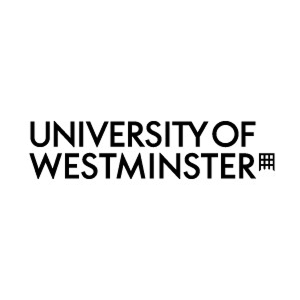
What is an authentic teacher and how can you become one?
You may also like
As teachers and lecturers, how can we build strong relationships with students so they can engage in their studies, learn and improve attainment? One way to help build this relationship is, quite simply, being yourself. Despite how it appears, this can be a challenging process that takes time to develop. It’s an issue that has been recreated many times in movies, for example in 1994’s The Mask, in which Jim Carrey plays Stanley Ipkiss, a man who is struggling with his personal and professional lives. One night, he finds a magical green mask, and when he puts it on, he becomes a funny, confident person with numerous powers. But do we really need a “mask” ourselves to be confident lecturers? We believe the answer rests in the concept of authentic teachers.
- Let’s get professional: advice for new university teachers
- Good teachers need to be good learners
- Want to be a better teacher? My daughter showed me we need to play more
In recent years, we have often heard the word “authenticity” bandied about in different disciplines. We now have authentic leadership, authentic assessment and much more authentic practice besides. The word authenticity is defined as real, genuine, true, accurate and original. So, at its most basic level, being an authentic person means being yourself – a complicated task, especially if you are a teacher. As such, here are three tips, identified by our students in module evaluations, emails and verbal feedback that will help you develop an honest, strong relationship with students and become more authentic teachers.
Being knowledgeable
We found that students tend to perceive an authentic teacher as someone who knows their field very well. And, of course, such expertise can be developed further by undertaking additional research, participating in conferences or being part of a network of experts that help you have a better understanding of current issues in your field. All these “extracurriculars” will help us in module design and when answering students’ questions. Equally, though, bear in mind that expertise is not only related to the field of study – it can also be found in knowledge of the administrative procedures that might help us provide academic and pastoral advice to students.
Being approachable
Being approachable means developing an environment of trust by reducing the professional distance between student and teacher. We can begin to develop this environment by applying three small and simple practices:
− Learning our students’ names. It may be challenging at the beginning, and it is easier in small classes, but few things help create a bond quicker. From week one, it is key to take manual attendance when students are working in small groups, as this will help us to remember their names. Further, we can ask them what they would prefer to be called and make sure our pronunciation is correct. These simple steps and more can have a big effect on remembering names, especially as you may be surprised to find how many students prefer to be called a different name from how they formally registered, which can also help you with recall.
− It is important to set lecturer-student expectations and ground rules in the first week of classes. This can be helped by giving students the opportunity to share their views in class or in an anonymous way by using sticky notes or a padlet. Then, we can share this information with the whole class and make an agreement between us. Such practices demonstrate interest and care in our students and their thoughts and input as well as giving them an opportunity to be themselves and see you as an approachable and attentive person.
− Storytelling is one of the most powerful tools in education, and by using recent, real-world examples – whether our own or more generally – we can help students make connections between class and their everyday lives. Moreover, we should not only make ourselves part of the story when sharing positive examples, such as our hobbies, favourite films, showing a pet’s picture or similar; we should also share our struggles. This helps increase students’ empathy, trust and can create an emotional connection with us. However, we should of course assess the right balance of what personal information we share with our students to keep the relationship friendly and professional at the same time. Every class is different, and finding the right balance when sharing personal stories is something we will learn over the semester.
Being passionate
Inspiring students through sheer love of your field and of learning is the educational holy grail. This can begin by demonstrating genuine focus on student learning and not only on meeting material content. Explain concepts again and again until all students understand. This leads students to perceive that we do really care about their learning and not only about completing the slides. However, there may be times here where you need to assess whether the student needs a separate one-to-one meeting to explain the concepts, otherwise we can delay the whole class. This practice demonstrates we are on the same journey of learning.
Another useful idea can include using different spaces for classes to demonstrate how passionate we are about exploring any and all learning opportunities. Use a suitable space to achieve the desired learning outcomes, including the classroom, short videos, polls, padlets, field trips, flip charts, social media, etc.
Finally, exploring unintended learning outcomes on a topic, which were not planned to be part of the session, can be very meaningful for some students. The challenge comes with managing our time so we can do all this while covering all the intended learning outcomes. So, planning is key – and we should not overload the teaching material with too many theories and slides.
Conclusion
It’s important to remember that being ourselves as teachers is something that we develop with experience and by slowly reshaping our teaching values. It is definitely not easy to be and be perceived as an authentic teacher. It is about not only demonstrating expertise but also creating strong bonds with students through small but significant acts that we cannot find in books. This comes through reading and understanding both our students and ourselves better. So, authentic teachers are not often born, but they can be developed with time. Sometimes we might wear a mask to become one, but with time and practice we will not need it forever.
Setenay Dilek Fidler is a lecturer at Westminster Business School, at the University of Westminster, UK.
Gustavo Espinoza Ramos is a course leader and doctoral researcher at the University of Westminster, UK.
If you found this interesting and want advice and insight from academics and university staff delivered direct to your inbox each week, sign up for the THE Campus newsletter.




